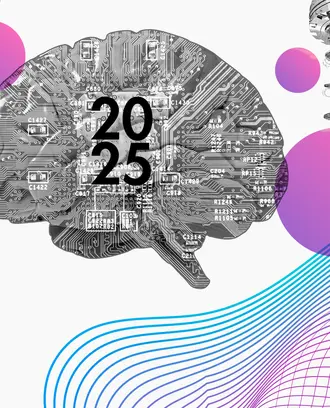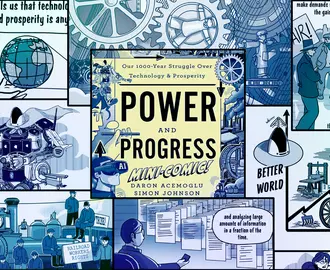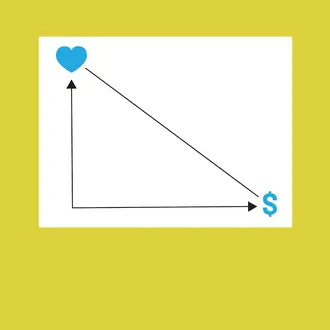Credit: Laura Wentzel
A new study on research doctorates shows that people with economics PhDs are more likely to have highly educated parents and come from a more socioeconomically advantaged background compared to other fields.
The results highlight the persistent lack of diversity in U.S. economics and raise the question of whether economists from a more privileged upbringing can understand the nuances around things like income distribution, unemployment, and poverty.
“Given this discrepancy, how well can the research or policy advice produced by the economics profession reflect the lived experience of the large majority of the population? What important questions and answers are missing,” writes MIT Sloan assistant professor in “Socioeconomic Diversity of Economics PhDs.”
In the paper, co-authored by Robert Schultz of the University of Michigan’s Institute for Social Research, Stansbury shows that in the last decade, 65% of U.S.-born economics PhDs had at least one parent with a graduate degree. Only 14% of that same group of U.S-born economics PhDs were first-generation college graduates.
That’s compared to 50% of all U.S.-born PhDs with at least one parent with a graduate degree, and 26% who are first-generation college graduates.
The results of the study are based on 2010 – 2018 data from the National Science Foundation’s Survey of Earned Doctorates (SED), an annual census of research doctorates from U.S. institutions.
Parental education is an indicator for socioeconomic background, Stansbury explained. It’s a strong predictor of family income, and family income is linked to a student’s access — or lack thereof — to resources that can help them throughout their education. Parental education can also factor into a student’s ability to navigate a university environment and understand available career options after completing an undergraduate degree.
Stansbury and Schultz divided their research between U.S.-born and foreign-born PhDs, and the latter showed a similar bias toward economics PhDs having more highly educated parents: Around 39% of foreign-born economics PhDs have at least one parent with a graduate degree, one of the highest percentages among foreign-born PhDs.
Thirty percent of this foreign-born group had no parent with a bachelor's degree, but according to the research, that’s one of the smallest shares among large PhD subjects for foreign-born PhDs.
Economics remains one of the least racially diverse academic fields, but Stansbury writes that the lack of socioeconomic diversity can’t fully be explained by the lack of racial diversity.
Underrepresented racial minorities are more likely to have parents with less formal education, but the majority of underrepresented racial minority economics PhDs were not first-generation college graduates, according to the research. In fact, 82% of all U.S.-born first-generation economics PhDs were white.
The researchers did not break down race and ethnicity with foreign-born PhDs because underrepresented minorities are defined differently across countries.
Stansbury also found that while U.S.-born women were on average underrepresented – making up about 25% of U.S.-born economics PhDs – women with at least one parent with a graduate degree were overrepresented among economics PhDs relative to the general population.
“Even though men on average are overrepresented in economics PhDs relative to the generation population, men with no parent with a bachelor’s degree are underrepresented: they make up 11% of all U.S.-born economics PhDs in our cohort, but 33% of the similar-aged population. Thus, the gender problem in economics is one of gender and socioeconomic background, not just gender,” Stansbury writes.
Stansbury and Schultz did find that foreign-born economics PhDs are more gender diverse than U.S.-born economics PhD recipients.
Proactive interventions for closing the socioeconomic gap
Stansbury writes that while there have been recent efforts to improve race and gender representation in a variety of areas, “diversity and inclusion efforts have largely overlooked social class.”
“This would be a concern in any discipline, but it is especially problematic in economics,”
Stansbury writes in an op-ed. “Socioeconomic background can affect individuals’ knowledge of these issues, their choice of questions to investigate, and their values.”
She offered minimum wage as an example. While any economist can study minimum wage and how it effects worker income and material consumption, not all of them will understand what it’s like to live paycheck to paycheck or be unable to find a job.
“Without that lived experience, it can be much harder to fully understand the nuances of formulating policy around quality jobs and a livable minimum wage,” Stansbury writes.
A reduction in tuition costs and increasing the reach of information about education can help improve socioeconomic diversity across academia, and Stansbury also offers a three-pronged approach to addressing this particular diversity gap in economics.
- Ensure introductory economics courses include real-word issues that economists study in their line of work.
“Economics 101 can feel over-stylized and unrealistic, somewhat removed from the issues that may be particularly important to students from less privileged backgrounds,” Stansbury writes. Consider removing phrases like “low skill” or “low ability” in economics in general, to avoid offense and intimidation. - Consciously build a pipeline to encourage a more diverse pool of undergraduates to pursue a PhD.
“Expanding opportunities for feedback, mentorship, and support across the board disproportionately helps people from underrepresented groups, whether that’s defined by socioeconomic background, race, or gender.” - Be proactive in offering faculty time and support to PhDs who need it most.“Understand that students with less family experience in higher education may be more reluctant to initiate relationships with faculty, may be less aware of what career goals to aim for or what to ask for (whether that’s advice, support, research assistant positions, or recommendation letters), and may have less prior experience with some of the skills they’ll need to build to be successful.”





